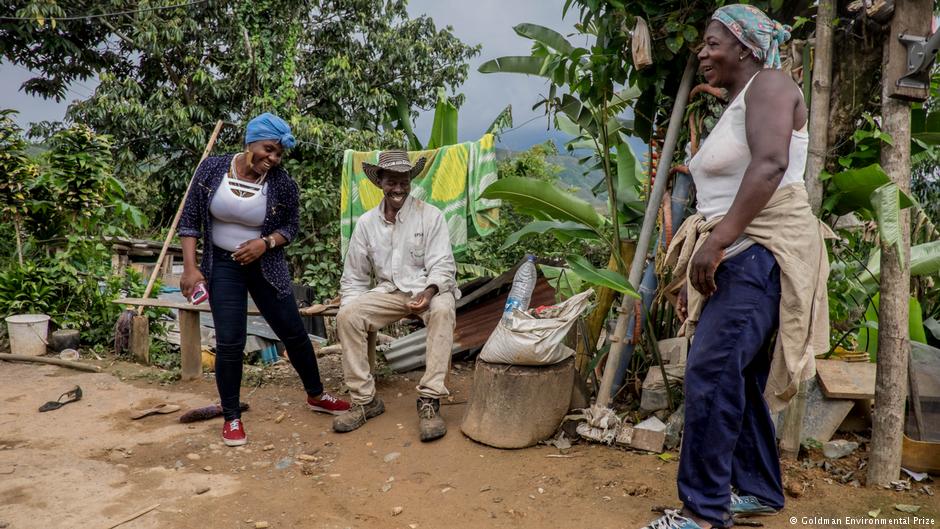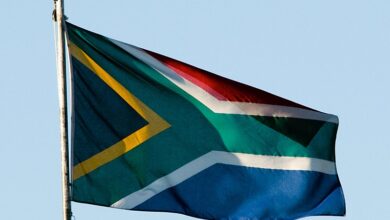
The Goldman Environmental Foundation has announced the seven recipients of the 2018 Goldman Environmental Prize, the world’s largest and most prestigious award for grassroots environmental activists. Six were women.
Awarded annually to “environmental heroes” from across six continents, the prize recognizes significant achievements in environmental protection, especially among independent activists whose untiring passion has driven them to successfully challenge government leaders and global corporations.
The prizes will be awarded in the San Francisco Opera House on Monday evening.
Frontline activism
The most celebrated recipient of the Goldman Environmental Prize in recent years was Honduran activist Berta Caceres, the leader of a successful campaign by indigenous Lenca people to stop the construction of the massive Agua Zarca Dam.
Long the victim of death threats, the high-profile activist, who gained international fame when she won the award in 2015, was tragically assassinated by gunmen less than a year after accepting the prize.
In 2018, six of the seven Goldman prizewinners are women. Activists from Colombia, France, Vietnam, the Philippines, South Africa and the United States have been recognized.
The successful campaigns include efforts to ban deep-sea bottom trawling in the EU, or to significantly reduce reliance on coal burning for energy in Vietnam.
Source of the problem
Among the women recognized this year was American LeeAnne Walters (pictured top), the initiator of a citizens’ movement that exposed an ongoing water crisis in Flint, Michigan — caused when the government tried to save money by switching its water supply from Detroit to the corrosive Flint River in 2014.
“That river has been an industrial dumping ground for 75 plus years,” said Walters in a video interview with the Goldman Prize.
By finally testing her own tap water that had turned a putrid brown, Walters, a mother of four, began to realize that high levels of lead in the drinking water (due to the corrosion of pipes by Flint river water) caused her children to develop rashes, and even to lose their hair.
But while her son was actually diagnosed with lead poisoning and anemia, the local government said it was an isolated problem.
In response, Walters initiated a mass “citizen testing” program in Flint that showed unsafe lead levels in nearly 20% of the citywide home water samples. The findings ultimately forced the government to switch back the water supply and to start replacing pipes that were dangerously corroded.
But for many residents, the long-lasting health damage has already been done.
Walters is now lobbying in Washington to significantly improve water testing standards federally. “That’s my personal mission … so that what happened to my family and my community never happens to anyone else again.”
David and Goliath
Far away in South Africa, two women environmental activists were simultaneously taking on their own government while also challenging the likes of Vladimir Putin.
Makoma Lekalakala and Liz McDaid are black and white South Africans who built a broad coalition to stop South Africa’s massive $76 billion (€62.1 billion) nuclear deal with Russia that was secretly signed in 2014.
For Lekalakala, a former anti-apartheid campaigner and director of the environmental activist organization Earthlife Africa, the nuclear deal was not only going to bankrupt the country but leave South Africa with toxic nuclear waste for hundreds of years.
“Freedom of speech and freedom of association is something we fought for in apartheid,” Lekalakala said in an interview with the Goldman Prize about deciding to oppose a deal that she also saw as a corrupt abuse of power.
After Lekalakala and Earthlife became privy to the secret agreement, she enlisted the help of long-time collaborator and environment campaigner Liz McDaid. The two soon held vigils, ran education workshops, lobbied government and organized daily protests outside the South African parliament in Cape Town.
“We decided that we would stand outside, speaking truth to power,” said McDaid. “In a world that has often been led by men, this was a space where two women could actually work together.”
The duo also decided to file a case in the nation’s highest court against President Jacob Zuma and his government for unconstitutionally signing the deal with Russian President Vladimir Putin behind closed doors.
In April 2017, the high court annulled the contract, ending the plan to build 10 nuclear reactors.
“As a result of this court case, the people of South Africa have to be consulted,” said McDaid outside the courthouse. “The future is in our hands; we are going to ensure that this government invest more in renewable energy. That’s going to ensure that we don’t destroy this planet.”




